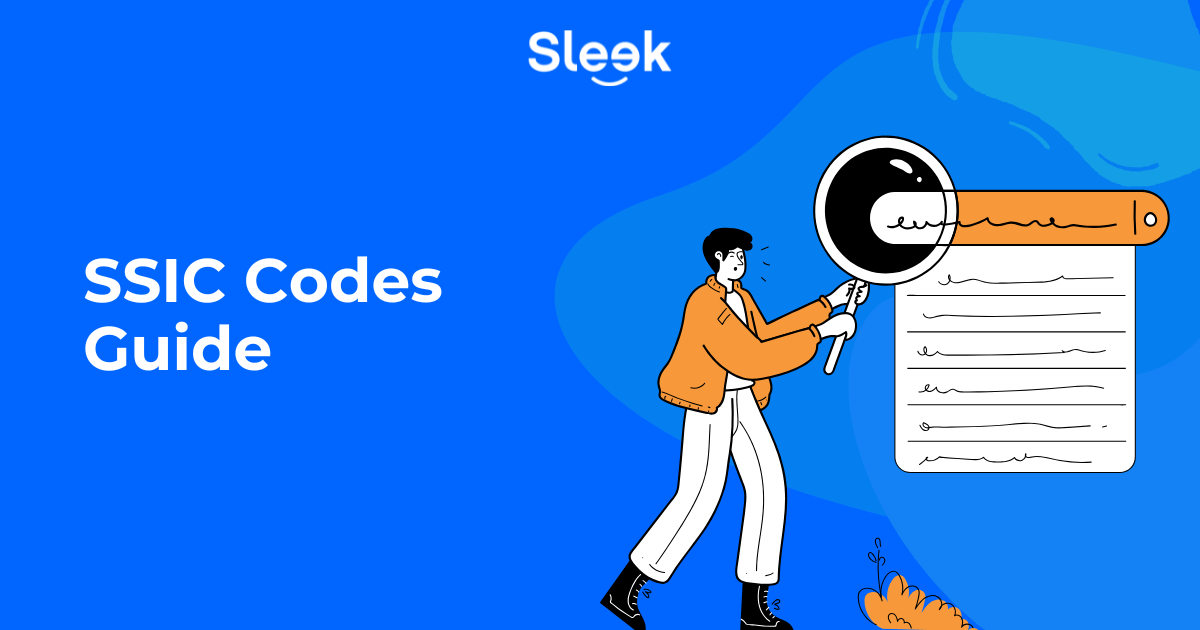Understanding Freelancers and Self-employed Singapore taxes
5 minute read
In recent years, the global workforce has witnessed a significant rise in the number of self-employed individuals, and Singapore is no exception. The allure of flexible work arrangements, creative freedom, and potential financial rewards has led many to explore freelancing and self-employment options. However, alongside the freedom comes the responsibility of managing taxes effectively, which can be a daunting task for the uninitiated.
In this blog, we will guide you through the basics of freelancing and self-employment in Singapore, the importance of accurate income tax calculation for self-employed, tax brackets, and deadlines, and offer tips to maximise your tax efficiency while ensuring compliance with Singapore tax laws.
Overview:

Importance of Accurate Tax Calculation
While freelancing and self-employment offer numerous benefits, it comes with the responsibility of managing taxes effectively. Accurate self-employment tax calculations are crucial to avoid potential penalties and ensure compliance with Singapore tax laws.
Keeping detailed records of self-employed income and expenses is essential, as it helps in preparing precise tax returns. By staying on top of your taxes, you can concentrate on growing your business without the burden of facing unforeseen tax liabilities.
Understanding Singapore Tax Laws for Freelancers and Self-Employed
As a freelancer or self-employed individual in Singapore, understanding your tax obligations and responsibilities is paramount. Unlike traditional employees whose most employers will submit their employment income information to the IRAS under the Auto Inclusion Scheme,, freelancers and self-employed individuals are required to handle their own taxes.
Typically, self-employment tax is assessed on the net trade income, which is the total income earned from their business minus allowable business expenses.
To further clarify the tax treatment, here’s a comparative table illustrating key differences between traditional employment and self-employment tax:
Aspect | Traditional Employment | Freelancing/Self-employment |
Tax Payment | Employers submit the employees employment income to the IRAS | Have to compute and file their own taxes |
CPF Contributions | Employer and employee contribute | Not mandatory, but can be considered |
Tax deductions for expenses | Limited to certain employee expenses | A broader range of business expenses |
But despite these, there are a lot of common misconceptions about taxes for freelancers and self-employed individuals. Let us help you debunk some of them.
1. Misconception: All Income is Tax-Free Below a Certain Threshold
Fact: All income, regardless of the amount, should be reported in your tax return. Taxes are assessed on a progressive basis in Singapore.
For instance, freelancers and self-employed individuals are generally required to file their income tax returns annually with the Inland Revenue Authority of Singapore (IRAS). The filing deadlines and procedures may vary depending on the individual’s circumstances.
2. Misconception: Business and Personal Expenses Can Be Mixed
Fact: It’s essential to keep personal and business expenses separate. To ensure personal expenses are not claimed as deductible expenses
The following are the individual income tax rate for resident individuals from YA2024. Note, self employed businesses are taxed under the same individual tax rates.
- 0% for the first S$20,000 of chargeable income
- 2% for the next S$10,000
- 3.5% for the next S$10,000
- 7% for the next S$40,000
- 11.5% for the next S$40,000
- 15% for the next S$40,000
- 18% for the next S$40,000
- 19% for the next S$40,000
- 19.5% for the next S$40,000
- 20% for the next S$40,000
- 22% for the next S$180,000
- 23% for the next S$500,000
- 24% for chargeable income in excess of S$1,000,000
Note that these rates are for residents, and non-residents may have different tax rates.
As a freelancer in Singapore, navigating the world of taxes can be challenging but not impossible. But you don’t have to do it alone.
3. Misconception: Registering for Goods and Services Tax (GST) is Optional
Fact: If your annual turnover exceeds SGD 1 million, GST registration is mandatory in Singapore.
So if your annual turnover exceeds a certain threshold (S$1 million), you may need to register for GST. GST is a value-added tax on the supply of goods and services in Singapore. Once registered, it is mandatory to charge and collect GST from your customers and file regular GST returns with the tax authorities.
4. Misconception: All Business-Related Expenses are Deductible
Fact: Not all expenses are deductible. Only expenses that are not prohibited under the Singapore Income Tax Act and are directly related to your trade or profession (including statutory and regulatory expenses) can be claimed.
For instance, freelancers and self-employed individuals can claim certain deductions and expenses related to their work to reduce their taxable income. These deductions may include business-related expenses such as equipment, office rent, utilities, and professional development costs. Keep in mind that certain expenses might be subject to specific conditions or limits.
5. Misconception: Cash-Based Accounting is Sufficient for Taxes
Fact: For tax purposes, accrual-based accounting may be required, recording income and expenses when earned or incurred.
By using accrual-based accounting, freelancers ensure that their financial records accurately reflect their business’s performance over time, matching the revenue earned with the expenses incurred during the same period. This method provides a clearer picture of their business’s profitability and financial health, even if there might be some time delay between invoicing and payment receipts. Ensure you have an efficient bookkeeping system in place to keep a proper record of transactions.
6. Misconception: Ignoring GST Compliance as a Freelancer
Fact: GST compliance is crucial if required to be GST-registered, ignoring it can lead to penalties.
It’s essential for freelancers and self-employed individuals to stay informed about the current GST regulations in Singapore, as they may be subjected to changes over time. They should also consider seeking professional advice from accountants or tax consultants to ensure they meet all their GST compliance obligations accurately and efficiently.
7.Misconception: Filing Taxes Late Has No Consequences
Fact: Failing to file freelance taxes on time can result in penalties and interest charges. Adhering to deadlines is essential.
Failing to file taxes on time or pay taxes promptly can lead to financial penalties and legal consequences. To avoid such issues, individuals should maintain proper financial records, seek professional tax advice if needed, and make timely submissions to the IRAS.
Don’t let confusion avoid you from taking action. Let Sleek handle your accounting and GST filing for you.
Filing Deadlines and Payment Schedules for freelancers
Freelancers in Singapore are required to file their taxes annually. The tax year in Singapore typically follows the calendar year, starting from January 1st and ending on December 31st. The tax filing deadline for individual taxpayers, including freelancers, is usually on April 15th of the following year for paper filing and April 18th for e-filing. For example, the tax filing deadline for income earned in the year 2022 would be on April 15, 2023 and April 18, 2023 respectively.
Freelancers can file their taxes online through the IRAS website using the “myTax Portal.” It’s essential to ensure all income earned during the tax year is accurately reported, and any eligible deductions or reliefs are claimed. By filing taxes on time and paying any taxes owed promptly, freelancers can avoid penalties and interest charges.
Understanding Goods and Services Tax (GST) for Self-Employed Individuals
Goods and Services Tax (GST) is a consumption tax levied on the supply of goods and services in Singapore. As a self-employed individual, if your annual turnover exceeds or is expected to exceed SGD 1 million, you are required to register for GST. Once registered, you will need to charge GST on your taxable supplies (goods and services) to your customers.
Self-employed individuals who are GST-registered must file their GST returns regularly, typically on a quarterly basis. The GST returns involve reporting the total output tax (GST collected from customers) and input tax (GST paid on business expenses) during the relevant period. The difference between output tax and input tax is either payable to the tax authority or refundable, depending on the circumstances.
It’s crucial for self-employed individuals to keep track of their GST obligations, ensure accurate reporting, and adhere to the filing deadlines to avoid penalties and maintain compliance with GST regulations.
Please keep in mind that tax laws and regulations are subject to change, so it’s essential to refer to official sources, such as IRAS, for the most up-to-date information on tax brackets, deadlines, and GST regulations in Singapore.
Become a part of our thriving tribe at Sleek, where we extend unwavering support to countless freelancers in managing their accounting and tax matters.
Maximising Tax Efficiency as a Freelancer or Self-Employed Individual
Keeping organised financial records and receipts is crucial to accurately calculate self-employment tax. Maintaining proper documentation allows for easy tax preparation and ensures that you do not miss out on any eligible deductions. This becomes easier when you handle all your accounting and tax-related functions on a platform like Sleek.
The Importance of Seeking Professional Advice
Given the complexity of tax laws and regulations, seeking professional advice is highly recommended. Tax professionals play a crucial role in ensuring accurate tax calculations and optimising your tax strategy.
If you’re unsure about any aspect of your taxes or need assistance with financial tax planning, consulting tax advisors at Sleek will save you time, money, and potential headaches.
To provide you with an efficient and seamless tax process, Sleek has the right set of solutions for you! Talk to experts at Sleek to get better guidance on how to file taxes for your freelance or solo business.









